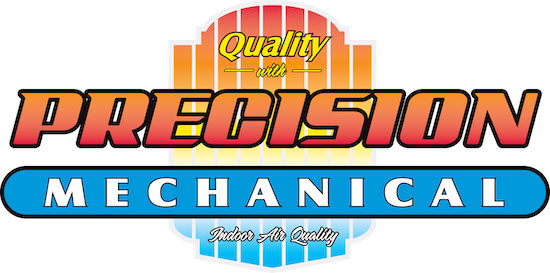
Did you perform a double take when you checked your last energy bill? While high energy bills can be the end result of severe weather events, persistently high bills can quickly indicate an inefficient HVAC system or your home is misusing energy because of other means, such as drafty windows or insufficient insulation.
One of the simplest ways to figure out whether your home is using too much energy is by hiring a home service expert to carry out a home energy audit, also known as a home energy assessment. Keep reading to find out more about home energy audits, including what they are and their benefits.
What Is a Home Energy Audit?
An energy audit is a custom inspection of how much energy your home uses up and whether – and where – your home might be losing or wasting energy. An inspector will go through older energy bills during an energy audit to figure out where energy is being wasted and how much.
The overall goal of an energy audit is to help homeowners save money on their energy bills by recommending energy-efficient renovations, which can include swapping out your current HVAC system, installing new insulation, plugging up leaks, or replacing drafty windows.
While completing the energy assessment, the auditor performs an inspection of the outside and inside of your home. The auditor will perform a blower door test on doorways, windows and fireplaces to determine if there are air leaks in your home. They’ll also evaluate your home’s HVAC system, as well as the ductwork, the water heater, and the insulation in your attic. Some assessments could also include checking your current lighting system.
Benefits of a Home Energy Audit
It can be tough for the ordinary homeowner to know for sure how efficient their home is versus other similar homes in their neighborhood. However, lots of energy companies often supply information about where your home ranks in comparison to similar homes and whether it’s more efficient, about average, or inefficient compared to your neighbors’ homes. This is a good starting point to decide if you need an energy audit performed.
Some of the benefits of a home energy audit include:
Learning How Efficient Your Home Is
It’s good to know how efficient your home is and where you’re consuming the most energy. For example, if your ducts are leaking air, it will cause a significant increase in your energy bills and additional wear and tear on your HVAC system as it has to run longer to fully heat or cool your home.
Making Energy-Efficient Improvements
An energy audit will expose where you need to make energy-efficient changes to cut back on energy and decrease utility bills. This may include replacing worn-down weatherstripping or installing a new energy-efficient furnace.
Enhancing Health and Safety
Allowing air to seep into your home via doors and windows, or because of a lack of insulation can cause excessive moisture to form, which may negatively influence your home’s humidity levels or encourage mold. This can lead to health conditions, especially for people dealing with asthma or allergies.
Raising Your Home’s Retail Value
Energy-efficient homes are sought after by homebuyers. You can sell your home much faster or for more money by showing prospective buyers that it’s energy efficient.
How to Complete an Energy Audit of Your Home
Although performing an energy audit on your own might not be as detailed as calling a professional, it’ll offer you a generalized understanding of how energy efficient your home is. If you don’t find any problems during the DIY test, then you potentially don’t need to call in a professional. Use this step-by-step checklist:
- Inspect your HVAC system. Broken ducts can lose up to 20% of conditioned air, leading to higher energy bills and increased strain on HVAC equipment. If you discover leaks, use duct tape to close them. If your HVAC equipment is old and inefficient, upgrading to a new system can save you a substantial amount on your energy bills. In some cases, it can be better to call a reputable HVAC company to inspect your system.
- Check for air leaks. Air leaks on average can raise the energy bills by 10 to 20%. Inside, look for air leaks in areas where there could be a draft, such as along the edge of flooring and along baseboards and electrical outlets. Outside, you can look for air leaks around the home’s foundation, siding and mortar. Plug, caulk or seal any air leaks to save money.
- Inspect insulation. If your home is older, it could mean your insulation is too. If you can see the joists, you likely need more insulation.
- Check ventilation. Make sure that all of your kitchen and bathroom exhaust fans are working properly, and inspect for evidence of rot or moisture.
Contact Precision Mechanical for a Professional Energy Audit
If you would like professional help finding out how energy efficient your heating and cooling equipment is, contact the HVAC pros at Precision Mechanical today. We’ve proudly serviced the residents of Rapid City with quality home services for a long time. Contact us today to schedule an appointment.













